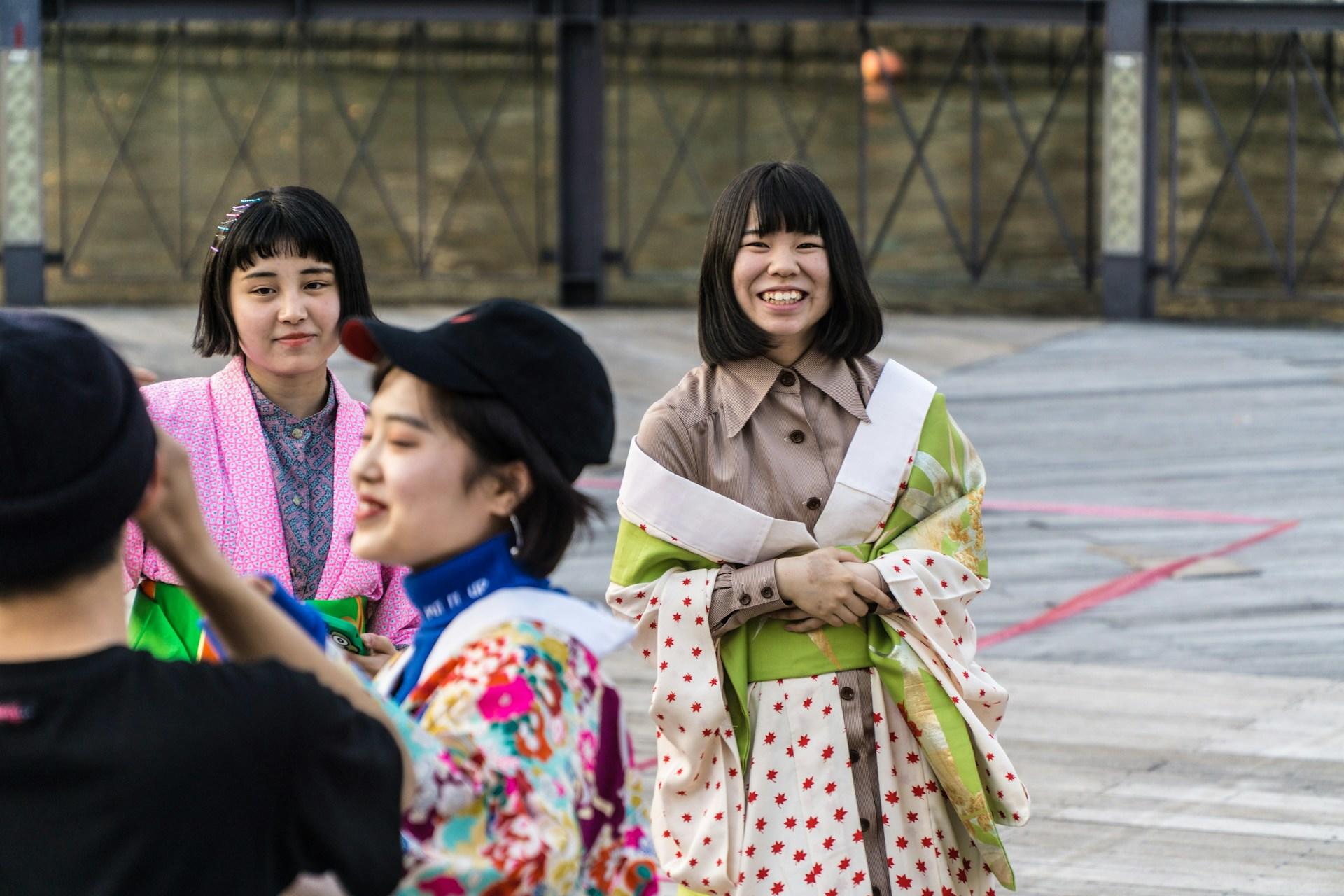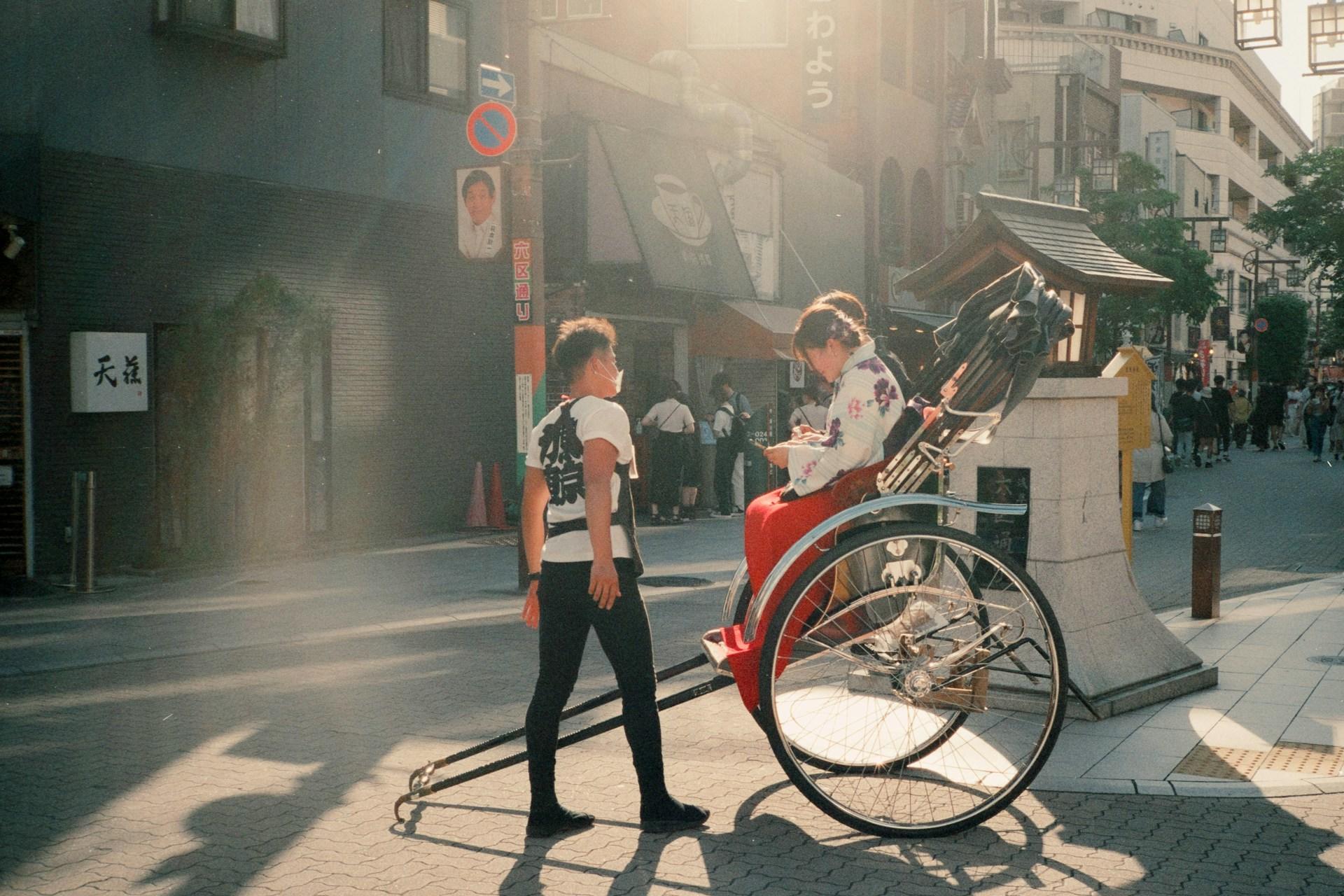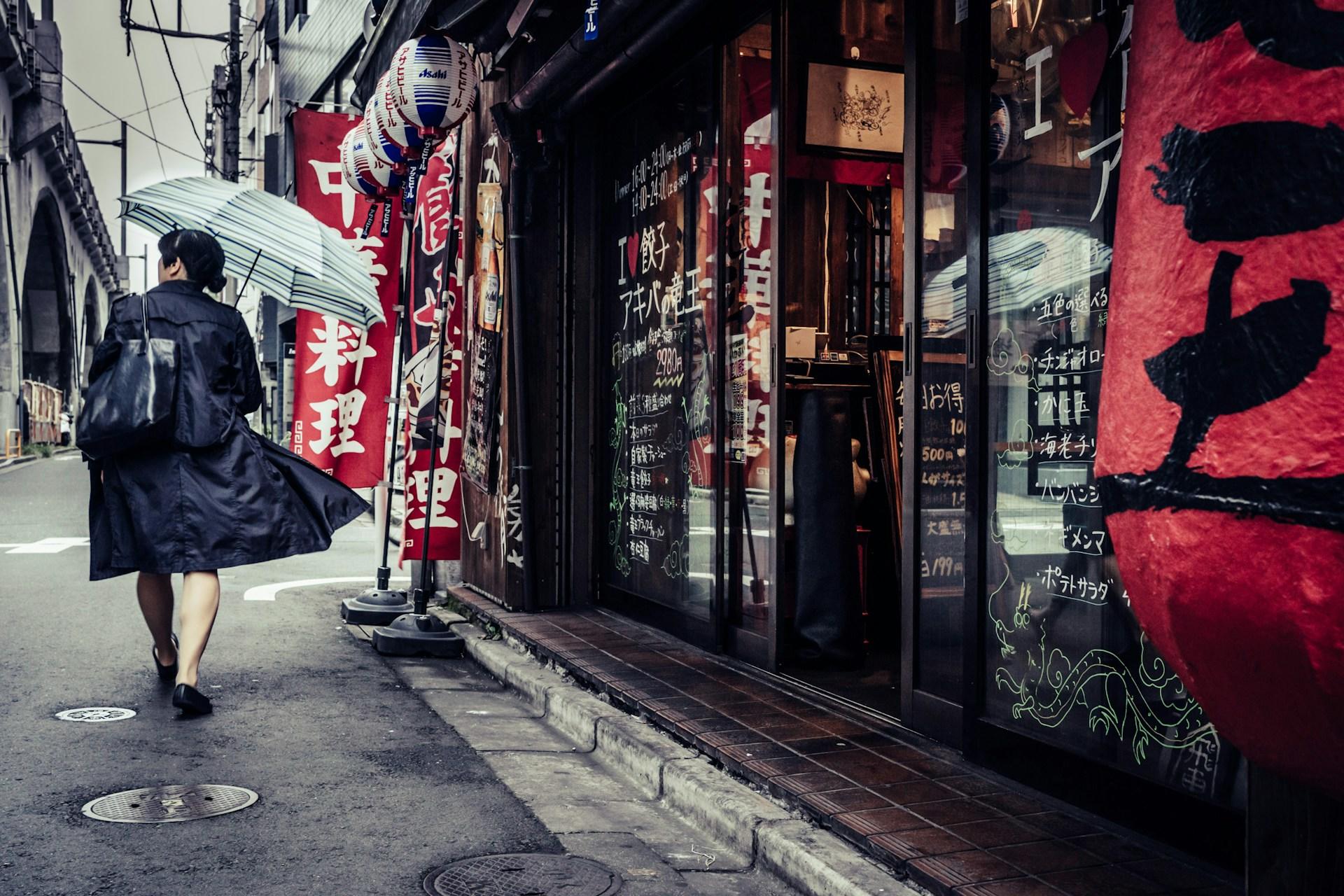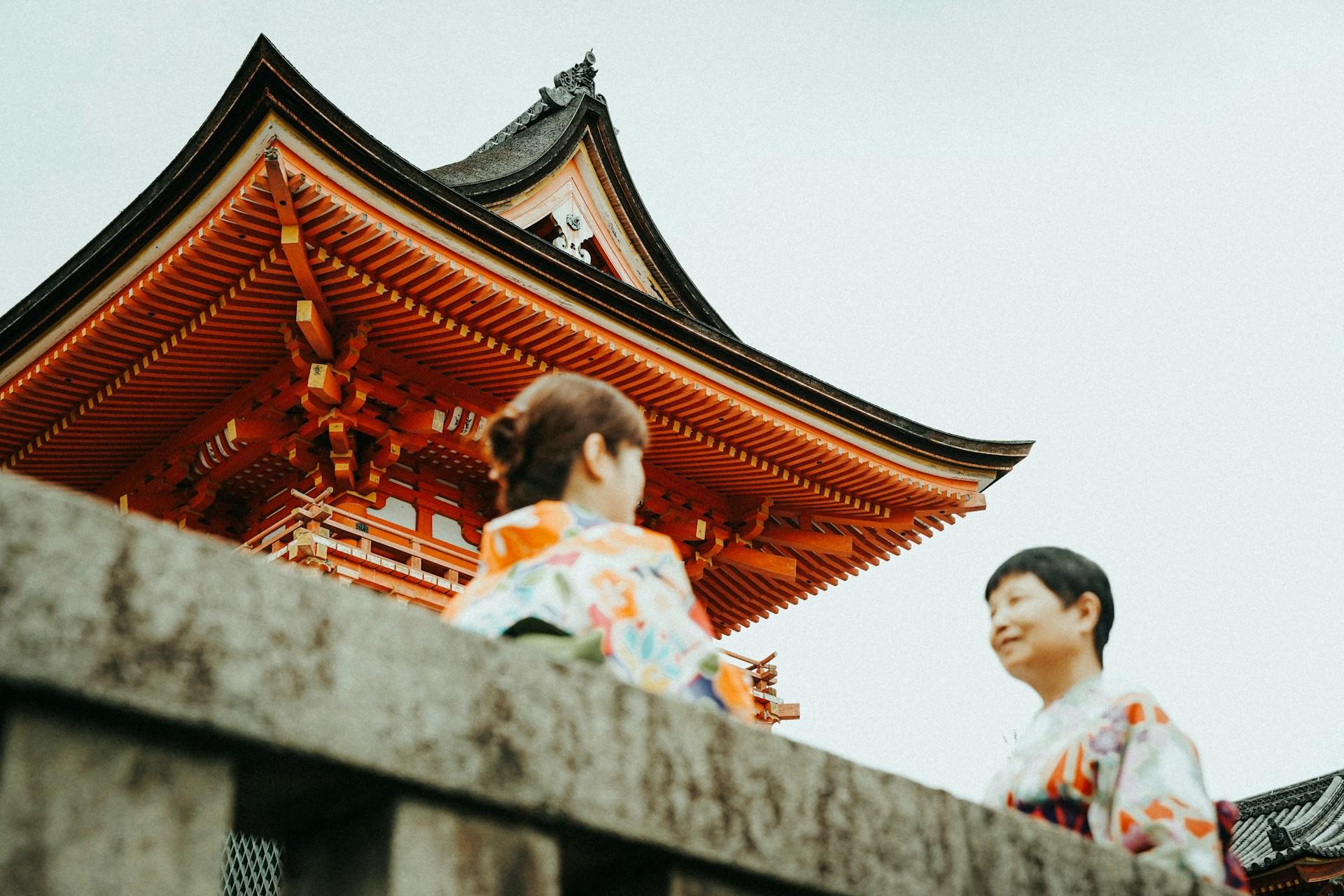When learning any new language, or even when just visiting a country for the first time, the most important and fundamental thing to learn is how to introduce yourself and what to say when meeting someone.
Without learning this first, a whole world of conversation, communication and opportunity is closed off to you.
Japanese is no different in this regard, in fact, Japan values this initial level of formality very highly!
If you can master a few basic phrases to let people know who you are and what business you have with them, you will have a much easier time earning the respect of Japanese citizens and navigating their complex yet fascinating culture.
All of this might seem like a bit of a difficult task, but don’t worry! This article will provide you with all the cultural insights you’ll need to start your Japanese journey, as well as some necessary phrases and Japanese vocabulary that will make your life easier if you hope to communicate in Japanese anytime soon.
If you’re ready to enter the world of Japanese greetings… Ikuzo!


Understanding Japanese Greetings: It’s More Than Just Words
Before we explore the different phrases that you can use in Japanese greetings, it’s important to understand how greetings should be approached from a cultural perspective.
Let’s start with a comparison to greeting someone in English.
Generally speaking, when we want to make our presence known to someone, we don’t just suddenly start speaking, since this will leave the listener confused while they try to figure out if you’re actually trying to talk to them, or what your intentions are.
Instead of doing this, English greetings usually start with a gesture like a wave, or an extended hand offering a handshake. In Japan, approaching someone is often similar, but the common gesture used when greeting someone is to bow towards them.
The depth and length of this bow correspond to the level of formality in the exchange, as well as your age and social status compared with the listener. Deeper and longer bows are afforded to seniors and high-status individuals.
If you want to learn more about the significance and nuance of the Japanese bow, we have another article here on the Superprof blog explaining it in more depth, be sure to check it out!
The prevalence of the bow isn’t to say that people don’t wave hello and goodbye in Japan, in fact, you might be interested to learn that when waving goodbye in Japan, it is customary to wave to one another until you are out of sight of each other.
If you wave in Japan, make sure that you wave with your palm facing away from your face, as waving with your thumb facing towards your face is a way of declining or denouncing, such as saying “No, not me”.
List of Basic Japanese Phrases & Greetings
| English | Romaji | Japanese | Pronunciation |
|---|---|---|---|
| Hello | Konnichiwa | こんにちは | |
| Good evening | Konbanwa | こんばんは | |
| Good morning | Ohayou gozaimasu | おはようございます | |
| Goodbye | Sayounara | さようなら | |
| Thank you | Arigatou gozaimasu | ありがとうございます | |
| You're welcome | Dou itashimashite | どういたしまして | |
| Excuse me/I'm sorry | Sumimasen | すみません | |
| How are you? | Ogenki desu ka? | お元気ですか? | |
| Yes, I'm fine | Hai genki desu | はい、元気です | |
| No, I'm not fine | Iie genki dewa arimasen | いいえ、元気ではありません | |
| Please | Onegaishimasu | お願いします | |
| I'm sorry | Gomen nasai | ごめんなさい | |
| Introducing yourself | Jikoshoukai o shimasu | 自己紹介をします | |
| Hello, my name is... | Hajimemashite watashi no namae wa... desu | はじめまして、私の名前は...です |

How to Say Hello in Japanese: Greetings Phrases
You might be thinking by this point, “This is all well and good… but how do you say hello in Japanese?”. That’s the question we’re going to answer now.
To start with, the most simple greeting, and the equivalent of ‘hello’ in English is ‘Konnichiwa’/(こんにちは). Although it is the equivalent of hello, it translates roughly to the much less common English greeting ‘Good day’.
The next step in developing your Japanese greeting skills is to consider the time and context of the greeting. Just like how we say good morning, good afternoon and good night in English, the Japanese vary their greetings based on the time of day.
It’s important to consider that in Japan, which for a large part of its history was separate from the West, our concept of the morning is slightly different. Meaning that the morning greeting is reserved for the first part of the working day, rather than all the way up until noon, as it is in English-speaking countries.
Up until about 9 am, the common greeting to hear is ‘Ohayou’/(おはよう). Which is the equivalent to saying good morning in English.
In polite or formal contexts, especially when addressing social elites, seniors and elders, the greeting is often embellished with ‘Gozaimasu’, which creates ‘Ohayou Gozaimasu’/(おはようございます).
But what about the afternoon or the evening? Instead of Ohayou or Konnichiwa, you’re quite likely to hear ‘Konbanwa’/(こんばんは).
If you’re an avid language learner, you might notice that this word shares a stem with Konnichiwa and this is because they are effectively the same, except that one means good day, and the other means ‘good afternoon/evening’.
There is another distinction to make between our English ‘Good afternoon’ and the Japanese ‘Konbanwa’, which is that while we might be inclined to switch our English greeting as soon as we pass 12:00, the Japanese reserve this greeting for after the Sun starts to set.

Introducing Yourself in Japanese
After saying hello when talking to someone for the first time, the next time is often to introduce yourself. In English, we frequently start this process by saying, ‘nice to meet you’, and Japanese is very similar in this sense, with the equivalent ‘Hajimemashite’(はじめまして).
‘Hajimemashite’ - Nice to meet you
There is a much more formal way of saying this in the words ‘dozo yoroshiku onegai shimasu’/(どうぞ よろしくお願いします). Be careful with this phrase, as it translates roughly to ‘please take good care of/with me’, which as you can probably tell, is not appropriate in casual situations.
Next, it’s nice to let the listener know your name, and the Japanese have a specific phrase for this in the form of ‘Watashinonamaeha [name] desu’/(私の名前は [name] です). In essence, you are just saying ‘my name is’. It’s important at this stage to use the correct honorific when referring to yourself.
Watashinonamaeha [name] desu’ - My name is...
For instance, if you are a young boy speaking to a senior, you would most likely use a different version of the word ‘Bokunonamaeha’, which means the same but is adapted to the context.
For a more in-depth guide on Japanese honorifics, make sure you check out our article that goes into depth on which ones to use depending on who you are and who you are talking to. It’s a vital skill to know when speaking Japanese!
Following on from this, it’s typical to tell people a bit more about yourself. Common things to talk about are your profession, hobbies, your age and where you’re from. Check out the list below to see how.
Age: To say your age in Japanese, we still use Watashi or our equivalent honorific in the structure… ‘Watashi wa [Numeric age] sai desu’. For a guide on Japanese numbers, make sure you check out the other Japanese articles on the Superprof blog.
Country of Origin: To say where you’re from the formula is quite similar, again, using the correct honorific we say… ‘Watashi wa [Country of Origin] kara desu’. Kara in this sentence is the equivalent to from in English, so the sentence translates to ‘I am from [country]’.
Watashi wa igirisukaradesu - I'm from England.
Occupation: We can learn a lot about someone from their occupation, and in Japan, this is one of the most important tenets of communication. It’s often the first thing you find out about someone, and people are often endearingly referred to by their career as a nickname. The formula is even simpler to tell someone what you do for a living, but the vocabulary might be trickier to learn. We use ‘Watashi wa [Profession] desu’ just like before. This is the same as saying ‘I am a ___’.
Watashi wa bengoshidesu - I am a lawyer.
You can be more formal by saying ‘My job is [profession]’ which is instead ‘Watashi no shokugyō wa [profession] desu’. The word for Occupation is Shigoto and you can use that instead too (‘Shigoto wa ____ desu.’) Remember those honorifics too!
Hobbies: Lastly, to tell someone about our hobbies, we use a very similar formula again. We use ‘Watashi no shumi wa [Hobby] desu’. Meaning ‘My hobby is ___’. Telling someone your hobby is a nice touch to the conversation that will give them an insight into something more casual about you.
Watashi no shumi wa sakkādesu- My hobby is football.
If you want to ask someone what their answer is to any of these things, you can use the formula ‘Anata no [thing you want to know] nandesu ka?’. If you know the person, you can change the honorific anata to the relevant one for them.
For example, you might end up with something like ‘[Name]San no shokugyō nandesu ka?’, meaning ‘What is your occupation mr/mrs[name]?’
Ending a conversation
Fortunately, due to the Romanisation of Japanese speech, it is very common to hear people say borrowed phrases from other languages like ‘bye bye’ or ‘ciao’ in Japan, and you should have no problem using common phrases like this to end a conversation.
If you really want to end a conversation formally in Japanese, you would say ‘Doumo’ meaning thanks followed by ‘Sayonara’, meaning goodbye or the more casual ‘Ja ne’, which means see you (later).

Afterword
Thank you very much for reading our article on Japanese greetings. If you want to learn more about Japanese, make sure you check out the other articles in our Japanese learning series right here on the Superprof blog.
If you want to fast-track your learning, why not try out Superprof's premier service, which is all about getting you in touch with the ideal tutor for you, based on your location and needs. Private tuition can massively increase your learning speed.
Until then, we hope to see you again soon! Ja ne!















